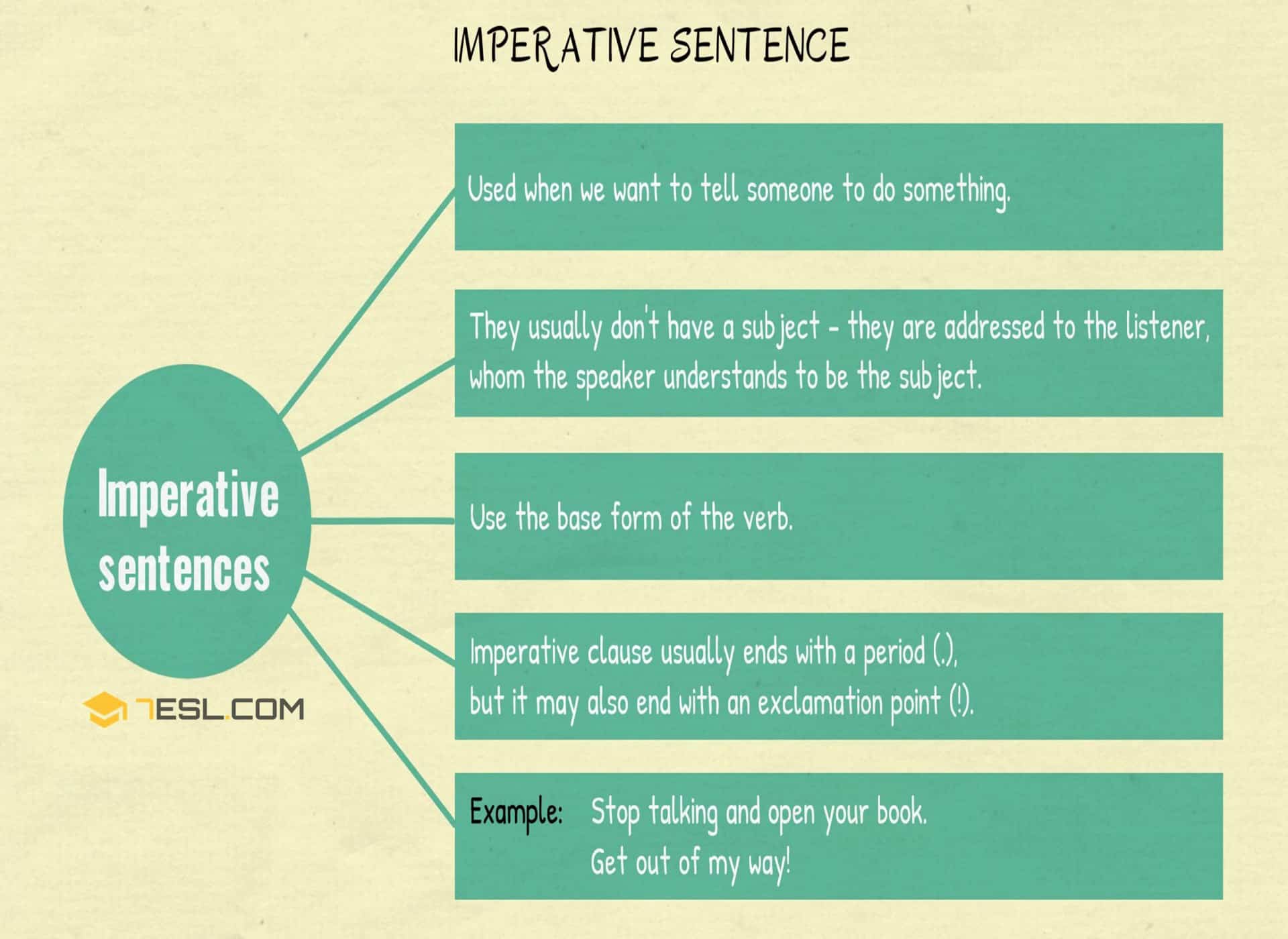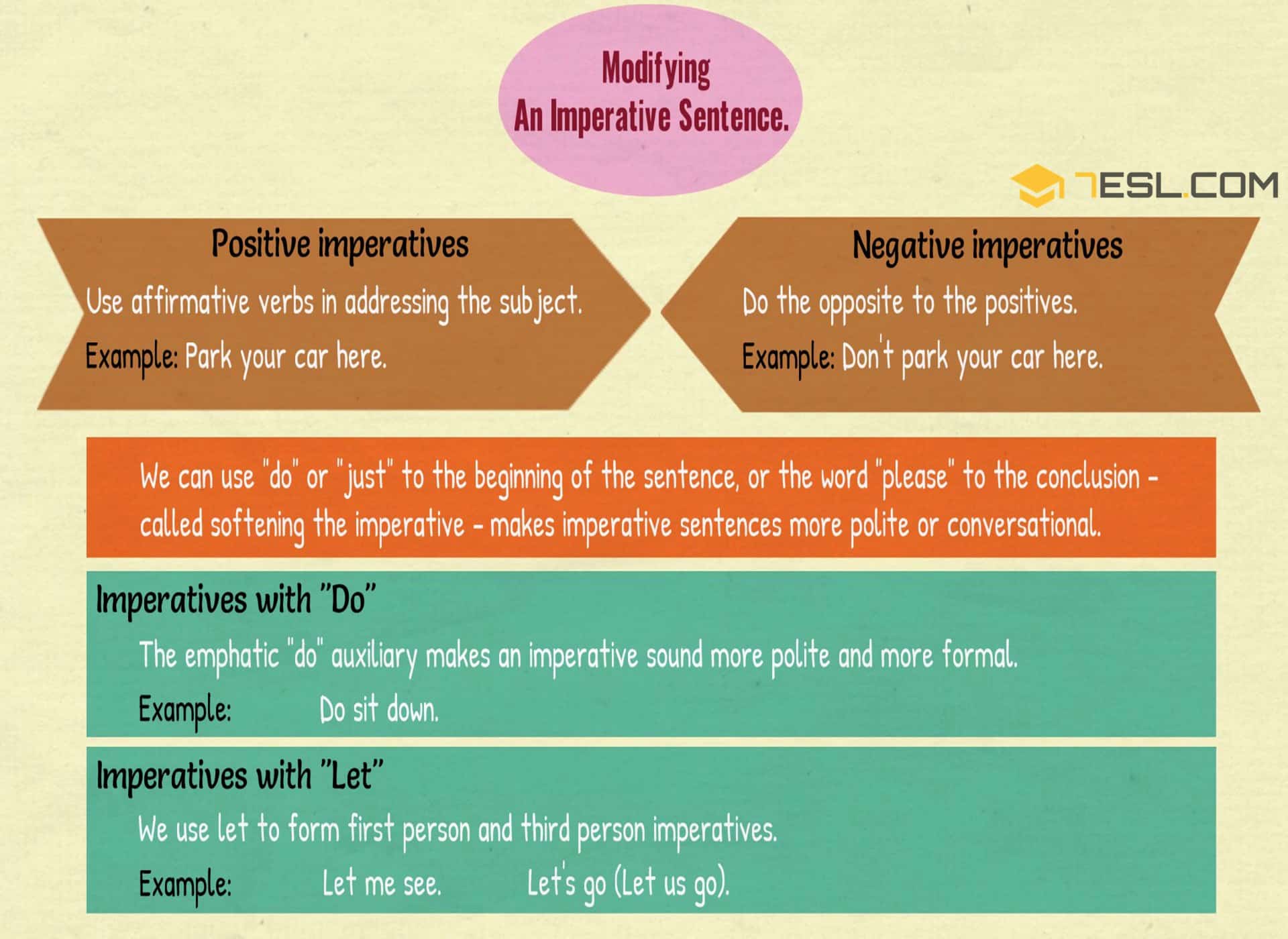Imperative Sentences! What is an imperative sentence? The imperative sentence is one which gives either advice or instruction. This is something that we see very frequently in both spoken and written English and therefore it is important that you are aware of how these sentences work.
In this section, we are going to be looking at the different types of imperative sentences as well as how they can be used. This will give you the opportunity to create your own imperative sentences which are grammatically correct, making your English sound much more fluent.
What is an Imperative Sentence?
Learn the imperative definition and how to use imperative sentences in English with examples and ESL worksheets.
Imperative definition: Imperative sentences are used when we want to tell someone to do something (telling people to do or not to do things).
We can use the imperatives to tell people to do or not to do things. They usually don’t have a subject – they are addressed to the listener or listeners, whom the speaker understands to be the subject.
In the imperative, we use the base form of the verb. Imperative clause usually ends with a period (.), but it may also end with an exclamation point (!).
Imperative sentence examples:
- Get out of my way!
- Stop talking and open your book.
- Go upstairs.
- Brush your teeth.
- Read the instructions.
- Switch off your mobiles.
- Don’t be late!

Types of Imperative Sentences with Examples
Imperative Sentences are used for advice, suggestions, requests, commands, orders or instructions…, specifically as follows.
A request
Example: Please consider.
An invitation
Example: Come to my party.
A command/ direct/ order
Example: Wake up now!
An instruction
Example: Go straight ahead and turn left.
An advice
Example: Don’t eat too much.
A warning/prohibition
Example: Don’t touch me!
Imperative Verbs
Positive imperatives use affirmative verbs in addressing the subject.
Negative imperatives do the opposite to the positives.
Examples:
- Get up early – Don’t get up early
- Park your car here – Don’t park your car here.
- Post those letters – Don’t post those letters.
Imperative Verb: Do
We can use “do” or “just” to the beginning of the sentence, or the word “please” to the conclusion – called softening the imperative – makes imperative sentences more polite or conversational.
Examples:
- Do sit down.
- Do be quiet.
Imperative Verb: Let
Let is used to form first person and third person imperatives.
Example:
- Let me see.
- Let’s go.









0 Comments